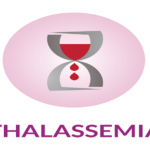The Global Hunger Index is a tool designed to comprehensively measure and track hunger at the global, regional, and national levels. The International Food Policy Research Institute (IFPRI) calculates GHI scores each year to assess progress and setbacks in combating hunger.
To capture the multidimensional nature of hunger, GHI scores are based on four indicators as follows:
1. Undernourishment: the share of the population that is undernourished (that is, whose caloric intake is insufficient);
2. Child wasting: the share of children under the age of five who are wasted (that is, who have low weight for their height, reflecting acute under-nutrition);
3. Child stunting: the share of children under the age of five who are stunted (that is, who have low height for their age, reflecting chronic under-nutrition); and
4. Child mortality: the mortality rate of children under the age of five (in part, a reflection of the mix of inadequate nutrition and unhealthy environments).
Government of India has accorded high priority to address the issue of hunger and malnutrition by implementing several schemes/ programmes to improve food security situation in the country. The reason for such poor ranking is more on account of comparative performance of other economies.
For tackling the problem of hunger in the country and to improve the position in GHI, Government has implemented following interventions:
• Provision of food grains at highly subsidized prices to the targeted population through State Governments/ UT Administrations under the Targeted Public Distribution System (TPDS) in terms of Nation Food Security Act, 2013 and Other Welfare Schemes (OWS) such as Mid-Day Meal Scheme, Integrated Child Development Services (ICDS) Scheme, Rajiv Gandhi Scheme for Empowerment of Adolescent Girls, Annapurna Scheme etc.
• National Food Security Act (NFSA), 2013 provides for coverage of up to 70% of the rural and up to 50% of the urban population thus covering about two-third of the population, for receiving food grains at highly subsidized prices of Rs.3, 2 and 1 per Kg. for rice, wheat and coarse grain respectively under TPDS.The Act also has a special focus on nutritional support to women and children.
• Recently National Nutrition Mission has been approved under MWCD for addressing malnutrition status of the country in a comprehensive manner.
The Minister of State (Health and Family Welfare), Sh Ashwini Kumar Choubey stated this in a written reply in the Lok Sabha here today.






